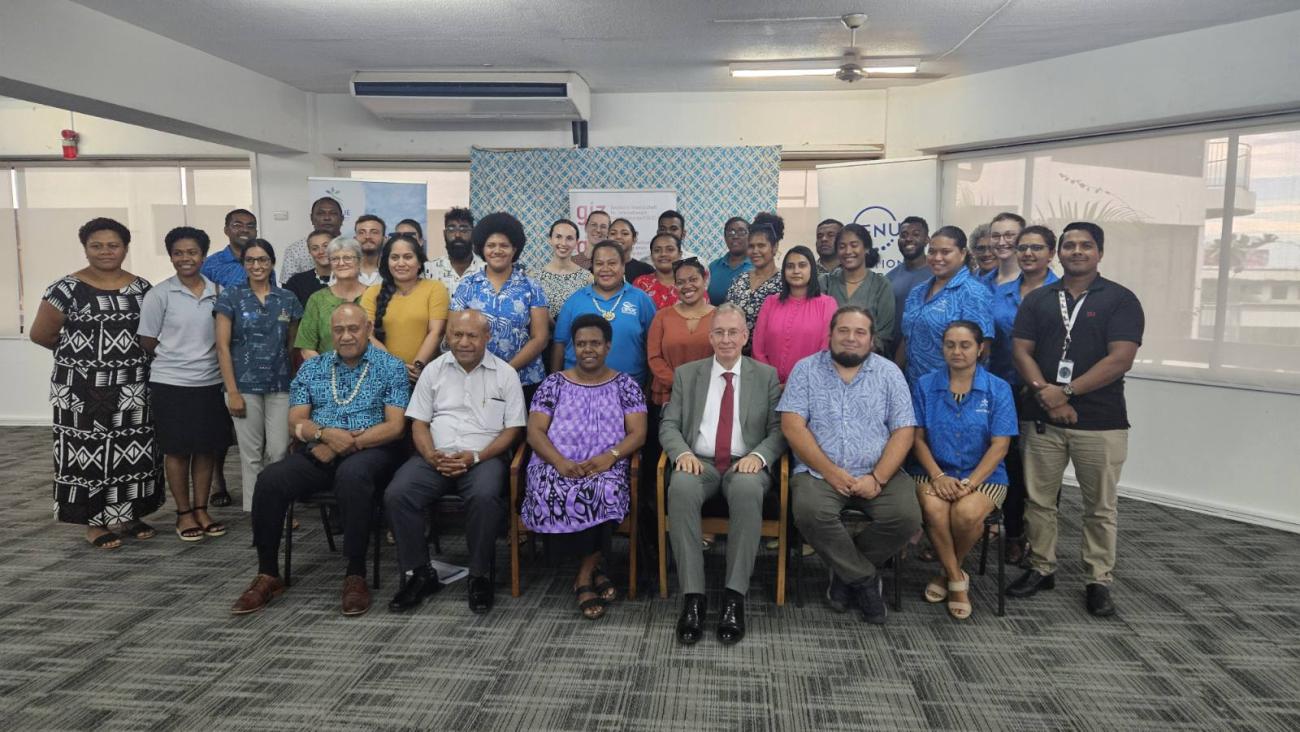(contenu disponible en anglais uniquement)
Pacific marine conservation efforts overwhelmingly focus on coral reefs with seagrass ecosystems marginalised in conservation legislation and policy.
This was the remarks shared by SPC’s Acting Deputy Director-General Science and Capability Florence Rahiria during a talanoa session convened to commemorate World Seagrass Day on March 1.
“Therefore, let us heed the call to action whether it is adopting sustainable practices, supporting research, or advocating for change, every action counts,” Rahiria shared.
“Our individual and collective contributions hold the power to effect transformative change and secure the future of seagrass ecosystems,”
Rahiria added traditional knowledge is proving to be a powerful tool for managing these ecosystems, often surpassing modern approaches.
“This is a testament to the deep connection between Pacific Islanders and their environment,”
“It is incumbent upon us to amplify their significance, educate our communities, and advocate for their protection,”
In his address, German Ambassador to Fiji His Excellency Dr. Andreas Prothmann shared with the loss and degradation of seagrass ecosystems, it is important to critically consider strategies on seagrass conservation.
“Their (seagrass) conservation is crucial for the achievement of the mitigation goals of the Paris Agreement on climate change,” Ambassador Prothmann shared.
He encouraged partners in the Pacific to anchor the importance of seagrass in national policies and priorities.
“It is pivotal that we raise the profile of seagrass ecosystems and their role in climate mitigation as well as providing ecosystem goods and services,”
Ambassador Prothmann also acknowledged the participation of women in the conservation efforts of seagrass in the Pacific.
“Women in fisheries, whether they are marine scientists, fisherwomen, or seafood vendors, are important stakeholders in the conservation efforts of coastal ecosystem. Therefore, their participation should be valued and appreciated,”
Hosted by the Management and Conservation of Blue Carbon Ecosystems (MACBLUE) project, the talanoa session was aimed at celebrating the importance of seagrasses, exchange on conservation practices in the Pacific Islands countries and fostering global collaboration for their protection.
Speakers included Dr. Shalini Singh, Associate Professor, College of Agriculture, Fisheries and Forestry of the Fiji National University, Mazzella Maniwavie, Programme Manager, The Nature Conservancy Papua New Guinea, Henry Kaniki, Conservation Programm Manager, WWF Solomon Islands and Falma Aiviji, Invertebrate Biologist, Vanuatu Department of Fisheries.
The MACBLUE project is jointly implemented by the Deutsche Gesellschaft für Internationale Zusammenarbeit (GIZ Pacific), Pacific Community and the Secretariat of the Regional Environment Programme.
